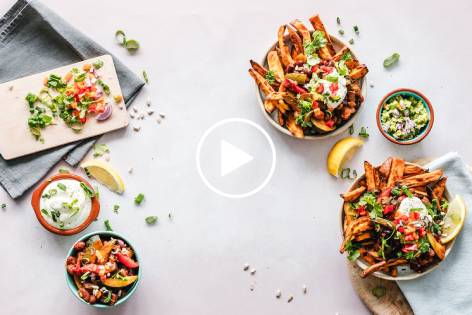
LMU – 177 Unlocking the Power of Diet and Lifestyle: Shielding Against Colon Cancer
Source: British Medical Journals “Gut” (September 2020)
Lifestyle Medicine Update (October 17, 2020)
Introduction:
Colon cancer, the second leading cause of cancer-related deaths in most developed nations, wields a significant impact on public health. Over the years, an increasing body of research has pointed to the undeniable influence of diet and lifestyle factors on the development of this malignancy. In this article, we delve into a compelling study published in the British Medical Journal, “Gut,” which meticulously scrutinizes the link between diet, lifestyle, and colon cancer.
The Foundation of Colon Cancer Risk
Before we dive into the protective and detrimental aspects of diet and lifestyle, it’s crucial to understand the foundational role they play in the risk of colon cancer. Numerous studies have unequivocally demonstrated that our daily choices significantly influence our susceptibility to this formidable disease.
Dietary Heroes: Magnesium, Folic Acid, Dairy, Fiber, and More
This comprehensive analysis uncovered a lineup of dietary superheroes, each armed with the power to shield against colon cancer. Magnesium, with an intake of at least 255 mg/day, emerged as a formidable defender, reducing the risk of colon cancer by a substantial 23%. Equally potent was the B-vitamin folic acid, showing its protective might with a 12-15% risk reduction. The stalwart presence of dairy products, associated with a 13% to 19% lower risk, can be attributed to their calcium content, as corroborated by other studies.
Dietary Fiber and Plant-Based Potency
Fiber, often hailed as a nutritional champion, demonstrated its prowess by contributing to a striking 22%-43% reduction in colon cancer risk. However, the real star of the show was fruit and vegetable intake, linked to a remarkable up to 52% lower risk[^1^]. Furthermore, for every additional 100 g/day (3.5 ounces) increase in intake, the protective effect gained momentum. The consumption of soybeans and soy products, spanning all varieties, was no less heroic, presenting an 8-15% decrease in the risk of colon cancer.
The Dark Side of Diet: Red Meat and Processed Meats
As with every epic saga, there is a dark side to this narrative. Red meat and processed meats emerge as antagonists in the battle against colon cancer, driving a 12-21% increase in risk. The ominous nature of this threat becomes even more apparent when considering a dose-dependent effect. Each additional 100 gm/d of red meat consumed escalates the risk, underscoring the dire consequences of unchecked consumption.
Alcohol – A Double-Edged Sword
The study’s findings underline the ambivalent nature of alcohol consumption concerning colon cancer risk. Even modest alcohol intake, ranging from 1-2 drinks per day, ushers in an elevated risk. This revelation adds nuance to our understanding of the relationship between alcohol and colon cancer, urging caution even among light to moderate drinkers.
A Synthesis of Established Wisdom
The revelations uncovered in this extensive review serve as a poignant reminder of the pivotal role our dietary and lifestyle choices play in preventing the second most prevalent cause of cancer-related deaths: colorectal cancer. While early detection through colonoscopies and fecal occult blood analysis remains crucial, proactive individuals dedicated to wellness should also be fervently committed to implementing practices that proactively ward off colon polyps and malignant tumours. The insights gained from this study offer a refined perspective on how to fine-tune our colon cancer prevention strategies.
Conclusion: Empowering the Fight Against Colon Cancer
In conclusion, the symbiotic relationship between diet, lifestyle, and colon cancer risk is undeniable. The findings elucidated in this study illuminate a path toward empowerment. By harnessing the protective potential of magnesium, folic acid, dairy, fiber, plant-based foods, and soy products, and vigilantly moderating red and processed meat intake as well as alcohol consumption, individuals can actively fortify their defences against colon cancer. As we navigate the complex terrain of colon cancer prevention, each dietary choice and lifestyle decision becomes a weapon in our arsenal to combat this formidable adversary.
Reference:
- Chapelle N, Martel M et al. *Recent advances in clinical practice: colorectal cancer chemoprevention in the average-risk population.* British Medical Journals – Gut. September 2020 [Read more](https://gut.bmj.com/content/early/2020/09/08/gutjnl-2020-320990)
Dr. Meschino

Dr. James Meschino
ABOUT THE AUTHOR
Dr. James Meschino, DC, MS, ROHP, is an educator, author, and researcher having lectured to thousands of healthcare professionals across North America. He holds a Master’s Degree in Science with specialties in human nutrition and biology and is recognized as an expert in the field of nutrition, anti-aging, fitness, and wellness as well as the author of numerous books.


